Lijadu Sisters
The Lijadu Sisters were a Nigerian singing duo consisting of identical twins [a2813421] (died 9 November 2019) and [a2813420] , who combined the genres of Afrobeat, funk, reggae, disco and Memphis soul. They were active from the mid-1960s to the early 1980s. Twins Taiwo and Kehinde were born in Jos, in northern Nigeria, on October 22, 1948. In Yoruba, ”Taiwo” means "the first twin to taste the world”, and ”Kehinde” "the second-born of the twins”, “the chaperone” or “the one who comes after Taiwo”. Though Taiwo is the firstborn, it is believed that Kehinde is the elder twin, sending Taiwo into the world first to determine if it is time to be born. The names are given to both boys and girls. One of the most popular acts in the Nigerian music scene of the 1970s, The Lijadu Sisters produced a handful of albums showcasing their tight harmonies and inventive incorporation of synthesizers and modern pop forms into funky Afro-beat grooves. Beginning as backing vocalists for studio sessions, the sisters eventually released a single in 1968 under their own name titled Iya Mi Jowo. In 1971, still working as session singers, the sisters met Cream/Africa 70 drummer Ginger Baker, and performed with Baker's band Salt at the 1972 Munich Olympic Games. With the assistance of multi-instrumentalist and producer Biddy Wright, the Lijadu Sisters would make four albums for Decca's Afrodisia imprint: 1976's Danger, 1977's Mother Africa, 1978's Sunshine, and 1979's Horizon Unlimited. These vibrant collisions of pop, reggae, and Afro-beat influences defined the sisters' unique hybrid sound and rocketed them to immense popularity in Nigeria, as well as gaining them the attention of a broader audience internationally.
Members: Taiwo Lijadu, and Kehinde Lijadu
Releases
-
 Horizon Unlimited
Horizon Unlimited
-
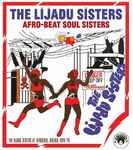 Afro-Beat Soul Sisters (The Lijadu Sisters At Afrodisia, Nigeria 1976-79)
Afro-Beat Soul Sisters (The Lijadu Sisters At Afrodisia, Nigeria 1976-79)
-
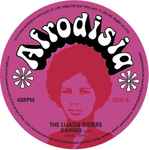 Danger / Orere - Elejigbo
Danger / Orere - Elejigbo
-
![]() Konkombe - The Nigerian Pop Music Scene
Konkombe - The Nigerian Pop Music Scene
-
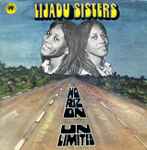 Horizon Unlimited
Horizon Unlimited
-
 Sunshine
Sunshine
-
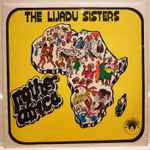 Mother Africa
Mother Africa
-
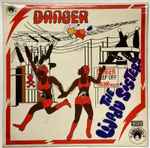 Danger
Danger
-
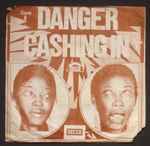 Danger / Cashing In
Danger / Cashing In
-
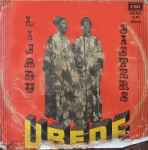 Urede
Urede
-
 Jikele - Maweni / Iya Mi Jowo
Jikele - Maweni / Iya Mi Jowo
-
 Afro Psych (Journeys Into Psychedelic Africa 1972 - 1977)
Afro Psych (Journeys Into Psychedelic Africa 1972 - 1977)
-
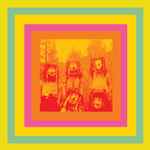 Everybody Anyone / Ayu
Everybody Anyone / Ayu
-
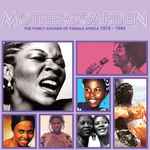 Mothers Garden (The Funky Sounds Of Female Africa 1975 - 1984)
Mothers Garden (The Funky Sounds Of Female Africa 1975 - 1984)
-
 Afrobeat Sessions
Afrobeat Sessions
-
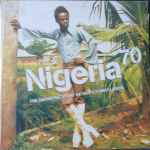 Nigeria 70 (The Definitive Story of 1970's Funky Lagos)
Nigeria 70 (The Definitive Story of 1970's Funky Lagos)
-
 New Juju Waves
New Juju Waves
-
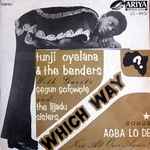 Which Way, Africa?
Which Way, Africa?
-
 Afro Psych (Journeys Into Psychedelic Africa 1972 - 1977)
Afro Psych (Journeys Into Psychedelic Africa 1972 - 1977)
-
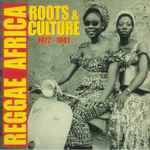 Reggae Africa (Roots & Culture 1972-1981)
Reggae Africa (Roots & Culture 1972-1981)
-
 A Mixed Tape Made By Black Marble
A Mixed Tape Made By Black Marble
-
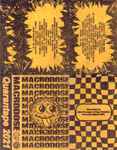 Macrodose Quarantape 2021
Macrodose Quarantape 2021
-
 Songlines: Top Of The World 156
Songlines: Top Of The World 156
-
 Nigeria 70
Nigeria 70
-
 Mothers Garden (The Funky Sounds Of Female Africa 1975 - 1984)
Mothers Garden (The Funky Sounds Of Female Africa 1975 - 1984)
-
 Nigerian Music Volume II
Nigerian Music Volume II
-
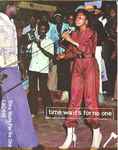 Time Waits For No One
Time Waits For No One
-
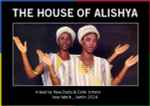 The House Of Alishya
The House Of Alishya
-
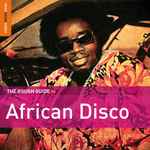 The Rough Guide To African Disco
The Rough Guide To African Disco
-
 Line Up 03 (A Proper Sampler)
Line Up 03 (A Proper Sampler)
-
 The World Ends: Afro Rock & Psychedelia In 1970s Nigeria
The World Ends: Afro Rock & Psychedelia In 1970s Nigeria
-
 Soul Boulders
Soul Boulders
-
 Essential Afrobeat
Essential Afrobeat
-
 Vibrations - Le Son Du Golfe De Guinée
Vibrations - Le Son Du Golfe De Guinée
-
 Afrobeat Sessions
Afrobeat Sessions
-
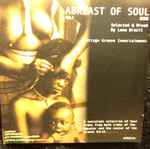 Abreast Of Soul 2003 Vol.1
Abreast Of Soul 2003 Vol.1
-
 Nigeria 70 (The Definitive Story of 1970's Funky Lagos)
Nigeria 70 (The Definitive Story of 1970's Funky Lagos)
-
 African Heartbeat
African Heartbeat
-
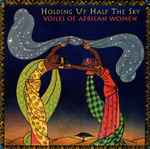 Holding Up Half The Sky - Voices Of African Women
Holding Up Half The Sky - Voices Of African Women
-
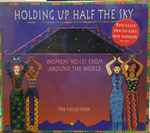 Holding Up Half The Sky - Womens Voices From Around The World
Holding Up Half The Sky - Womens Voices From Around The World
-
 Africa In Your Earbuds #51
Africa In Your Earbuds #51
-
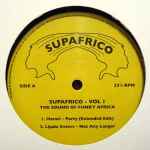 Supafrico - Vol I (The Sound Of Funky Africa)
Supafrico - Vol I (The Sound Of Funky Africa)
 Horizon Unlimited
Horizon Unlimited
 Afro-Beat Soul Sisters (The Lijadu Sisters At Afrodisia, Nigeria 1976-79)
Afro-Beat Soul Sisters (The Lijadu Sisters At Afrodisia, Nigeria 1976-79)
 Danger / Orere - Elejigbo
Danger / Orere - Elejigbo
 Horizon Unlimited
Horizon Unlimited
 Sunshine
Sunshine
 Mother Africa
Mother Africa
 Danger
Danger
 Danger / Cashing In
Danger / Cashing In
 Urede
Urede
 Jikele - Maweni / Iya Mi Jowo
Jikele - Maweni / Iya Mi Jowo
 Afro Psych (Journeys Into Psychedelic Africa 1972 - 1977)
Afro Psych (Journeys Into Psychedelic Africa 1972 - 1977)
 Everybody Anyone / Ayu
Everybody Anyone / Ayu
 Mothers Garden (The Funky Sounds Of Female Africa 1975 - 1984)
Mothers Garden (The Funky Sounds Of Female Africa 1975 - 1984)
 Afrobeat Sessions
Afrobeat Sessions
 Nigeria 70 (The Definitive Story of 1970's Funky Lagos)
Nigeria 70 (The Definitive Story of 1970's Funky Lagos)
 New Juju Waves
New Juju Waves
 Which Way, Africa?
Which Way, Africa?
 Afro Psych (Journeys Into Psychedelic Africa 1972 - 1977)
Afro Psych (Journeys Into Psychedelic Africa 1972 - 1977)
 Reggae Africa (Roots & Culture 1972-1981)
Reggae Africa (Roots & Culture 1972-1981)
 A Mixed Tape Made By Black Marble
A Mixed Tape Made By Black Marble
 Macrodose Quarantape 2021
Macrodose Quarantape 2021
 Songlines: Top Of The World 156
Songlines: Top Of The World 156
 Nigeria 70
Nigeria 70
 Mothers Garden (The Funky Sounds Of Female Africa 1975 - 1984)
Mothers Garden (The Funky Sounds Of Female Africa 1975 - 1984)
 Nigerian Music Volume II
Nigerian Music Volume II
 Time Waits For No One
Time Waits For No One
 The House Of Alishya
The House Of Alishya
 The Rough Guide To African Disco
The Rough Guide To African Disco
 Line Up 03 (A Proper Sampler)
Line Up 03 (A Proper Sampler)
 The World Ends: Afro Rock & Psychedelia In 1970s Nigeria
The World Ends: Afro Rock & Psychedelia In 1970s Nigeria
 Soul Boulders
Soul Boulders
 Essential Afrobeat
Essential Afrobeat
 Vibrations - Le Son Du Golfe De Guinée
Vibrations - Le Son Du Golfe De Guinée
 Afrobeat Sessions
Afrobeat Sessions
 Abreast Of Soul 2003 Vol.1
Abreast Of Soul 2003 Vol.1
 Nigeria 70 (The Definitive Story of 1970's Funky Lagos)
Nigeria 70 (The Definitive Story of 1970's Funky Lagos)
 African Heartbeat
African Heartbeat
 Holding Up Half The Sky - Voices Of African Women
Holding Up Half The Sky - Voices Of African Women
 Holding Up Half The Sky - Womens Voices From Around The World
Holding Up Half The Sky - Womens Voices From Around The World
 Africa In Your Earbuds #51
Africa In Your Earbuds #51
 Supafrico - Vol I (The Sound Of Funky Africa)
Supafrico - Vol I (The Sound Of Funky Africa)